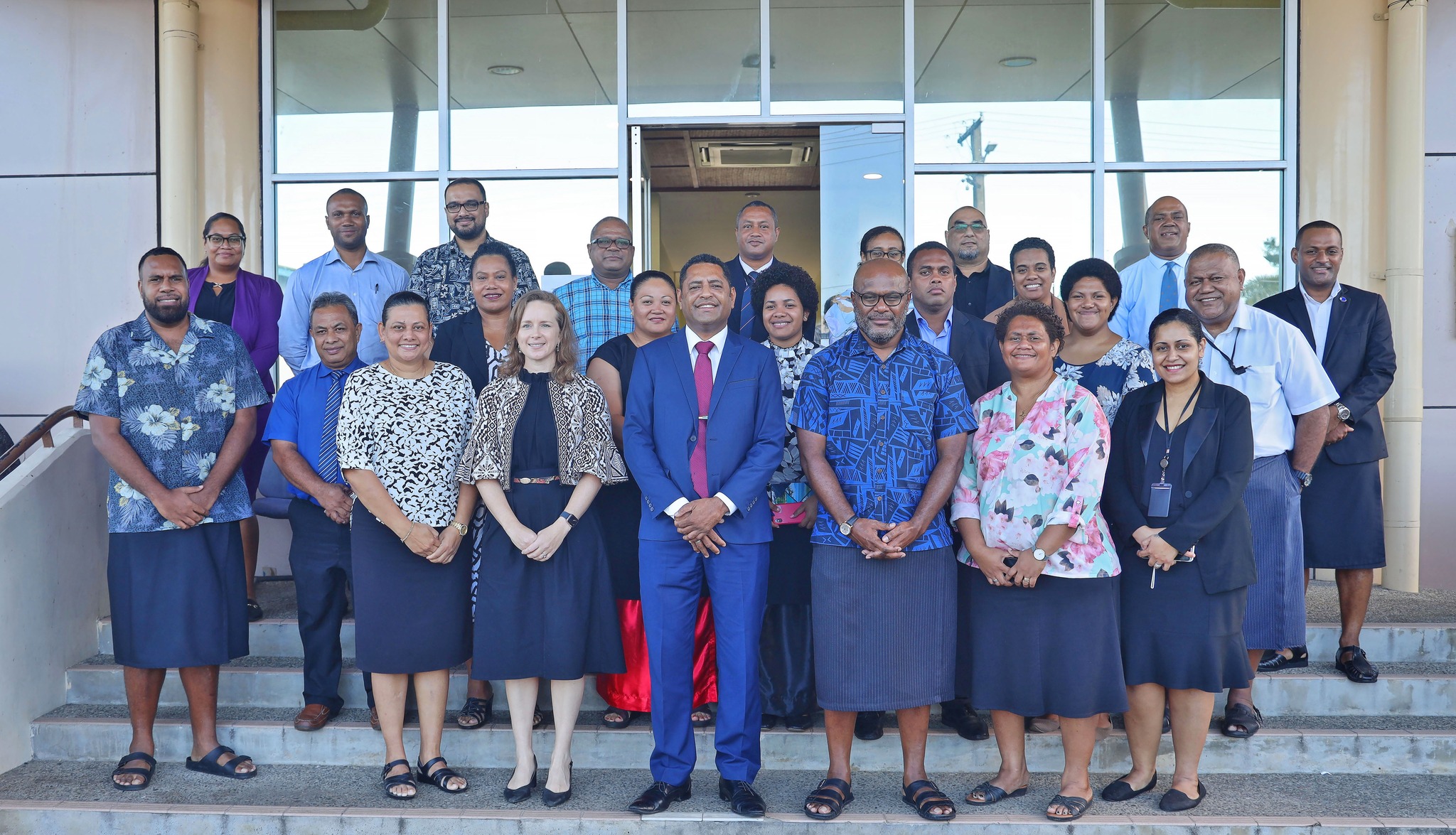The Pacific Islands Forum Secretariat (PIFS) in collaboration with the Ministry of Foreign Affairs convened National Consultations for Fiji on the key regional initiatives for 2024.
The first of such consultation was presided by the Deputy Secretary General of the Pacific Islands Forum Secretariat (PIFS) Esala Nayasi and Fiji’s Roving Ambassador, William Toganivalu.
It was held Friday at the Ministry of Foreign Affairs headquarters in Suva.
Discussions considered Fiji’s perspective and experiences in the context of the key regional initiatives for 2024 and took into account updates on the national priorities to better inform the alignment of the 2050 Strategy for the Blue Pacific Continent (2050 Strategy). The outcomes of Friday’s deliberations will inform a cohesive implementation of the 2050 Strategy.
The initiative demonstrates Fiji’s commitment and solidarity with Forum members in building a more resilient, prosperous and peaceful Pacific Region.
In his opening address, Nayasi acknowledged the Fiji Government as the host country of the Pacific Islands Forum Secretariat and reaffirmed the value and historical linkages of Fiji and the organisation.
Nayasi underlined the value of Pacific Regionalism and collective action and advocacy to inform and drive regional priorities.
In his remarks, Toganivalu thanked PIFS for the commitment to foster unity, solidarity and progress among Forum member states.
He spoke of the importance of national consultations to shape a sustainable future of the region and to make positive impacts on the lives and livelihood of the Pacific Family.
Toganivalu said it is incumbent upon the Forum members to ensure that this crucial process is guided by the principles of equity, inclusivity and sustainability.
The consultations focused on raising awareness and appreciation for Pacific Regionalism and PIFS role, to ensure that regional mechanisms align and support the national development priorities, address challenges and promote opportunities for deeper regional engagements.
The 2050 Strategy was endorsed by the Pacific Islands Forum Leaders in 2022 guiding regionalism in the Pacific, and its Implementation Plan (2050 Strategy Implementation Plan) was endorsed also by the Leaders in 2023 in Cook Islands.
Meanwhile, the newly-launched United Nations Social Cohesion Programme for Fiji is expected to promote peacebuilding and reconciliation in the country.
Prime Minister Sitiveni Rabuka launched the program last week, conveying the government and the people of Fiji’s gratitude to the United Nations Secretary General Antonio Guterres and the UN Resident Representative to Fiji Dirk Wagener for their support in making this initiative a reality.
“The UN Social Cohesion Programme for Fiji will support Government agencies and civil society organisations in promoting social cohesion. Under the programme, Fiji government agencies and civil society organisations will work together to address key sources of tension in Fiji and promote dialogue and respect for human rights.”
The PM highlighted that the programmealigns with the agenda of the People’s Coalition government in its efforts to build peace locally and also on the international stage.
“With this funding and close partnership between the Fiji Government and the United Nations, the project aims to strengthen connections, trust, and accountability, and ultimately, peace and reconciliation among the people of Fiji,” he added.
“The project will address key sources and potential triggers of tension in Fiji by promoting dialogue and respect for human rights. It will bring Fiji a step closer to achieving the Peace Pillar, under the United Nations Pacific Sustainable Development Cooperation Framework 2023 to 2027.
“I urge us all to continue to carry forth the spirit of collaboration and commitment that has characterised our gathering today.”
PM Rabuka, at the same time, reiterated his commitment to establishing a Truth and Reconciliation Commission to address the events of 1987, 2000, and 2006, saying, “It is now time to make peace at home, promoting social cohesion and addressing the pain and injustices of the past for a better future”.
He also reaffirmed his call for the establishment of a “Zone of Peace” in the region, expressing his hopes for a peaceful Pacific.
“Peacebuilding at home and on the global and regional stage is the key agenda for Fiji and priority of the government I lead.
“Let us remain steadfast in our efforts, knowing that together, we can build a future where conflict gives way to understanding, where division yields to unity, and where hope prevails over despair.”
This program is being implemented with the Government of Fiji and United Nations family – the United Nations Development Programme, UNWOMEN, and the Office of the High Commissioner.














